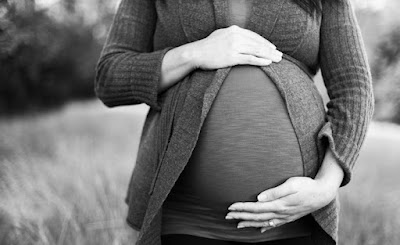Children conceived vaginally had twofold the degree of defensive antibodies created after youth immunizations.
The specialists said the thing that matters was brought about by the sorts of good microorganisms, which colonize our bodies upon entering the world.
And keeping in mind that C-area infants truly do get assurance, it might require besting up with probiotics or additional immunizations.
Our introduction to the world is the second we rise out of the clean universe of the belly to one overflowing with infinitesimal life.
Microorganisms - including microbes, growths, infections, and archaea - make our bodies home and in the end, dwarf our "human" cells.
This secret portion of ourselves is known as the microbiome and one of its jobs is preparing our safe framework from the get-go in life. If you are brought into the world through your mom's introduction to the world trench then the principal organisms you experience are the ones that live in her vagina. A C-segment sets you on an alternate way, as those early colonizers of your body are bugs residing on individuals' skin or in the clinic or home.
The analysts at the College of Edinburgh as well as Spaarne Clinic and Utrecht College Clinical Center in the Netherlands needed to understand what influence this had on antibodies.
They followed the stomach microbiomes of 120 children from their most memorable dim green tacky crap (the meconium) until they were a year old.
The outcomes distributed in the diary Nature Correspondences showed more significant levels of Bifidobacterium and Escherichia coli species (a couple of types of E. coli are hazardous) in the kids conceived vaginally.
They said these useful microorganisms were prompting around twofold the degrees of antibodies in light of the pneumococcal and meningococcal immunizations. Different antibodies including influenza and BCG for tuberculosis have proactively been demonstrated to be impacted by the microbiome.
"The underlying correspondence between the safe framework and organisms is significant," said by Prof Debby Bogaert, the seat of pediatric medication at the College of Edinburgh.
She said stomach microbes delivered synthetic substances - called short-chain unsaturated fats - that told the invulnerable framework the time had come to turn on. Without them "you see less B-cell advancement" which are the cells that produce antibodies.
Every one of the infants was solid and had arrived at full term so the discoveries are not impacted by different infections or untimely birth.
Strikingly all kids made antibodies after immunization, so C-segment infants are not unprotected. In any case, the analysts said the discoveries were especially significant for those with hereditary problems or who are conceived untimely, as their safe frameworks are as of now not completely evolved.
What should be possible about it?
There is much of the time a clinical requirement for C-segments to safeguard the strength of the mother or child.
There has been a new pattern for "vaginal cultivating" in which C-segment children are spread with vaginal liquids from the mother. What's more, a new report even played out a waste transfer - or trans-crap on-which gives the mother's stomach microorganisms to the youngster. Both intend to supplant the missing organisms.
Nonetheless, Prof Bogaert told: "Hypothetically it very well may be ideal to give missing organisms back to the kid brought into the world by C-area, yet by and by that is very muddled and you need to ensure it isn't hazardous."
The logical preliminaries evaluated the feces for any perilous diseases, which is less pragmatic in the event that it must be finished for each C-segment child.
Prof Bogaert thinks giving an exact mixed drink of valuable microorganisms - probiotics - to C-segment infants would be a "more secure course". On the other hand, C-area infants could be given an additional portion of immunization.
Prof Neil Mabbott, a specialist in immunology at The Roslin Establishment, additionally College of Edinburgh, said it was dubious that organism levels in the body were straightforwardly liable for expanded neutralizer reactions.
Yet, he added: "This study raises the likelihood that it could be feasible to treat newborn children, particularly cesarean-conveyed babies, with a bacterial enhancement or even an item delivered by these gainful microbes to assist with working on their safe frameworks, improve their reactions to specific immunizations and lessen their weakness to diseases."
Dr. George Savva, an analyst at the Quadram Establishment Bioscience, said: "This paper is significant in starting to comprehend the elements that add to immunization reaction in newborn children and the job of the microbiome."
Yet, he said it was a generally little review, and that further examination would be required before reaching firm determinations was protected.
(source=BBC)
Advertisement
